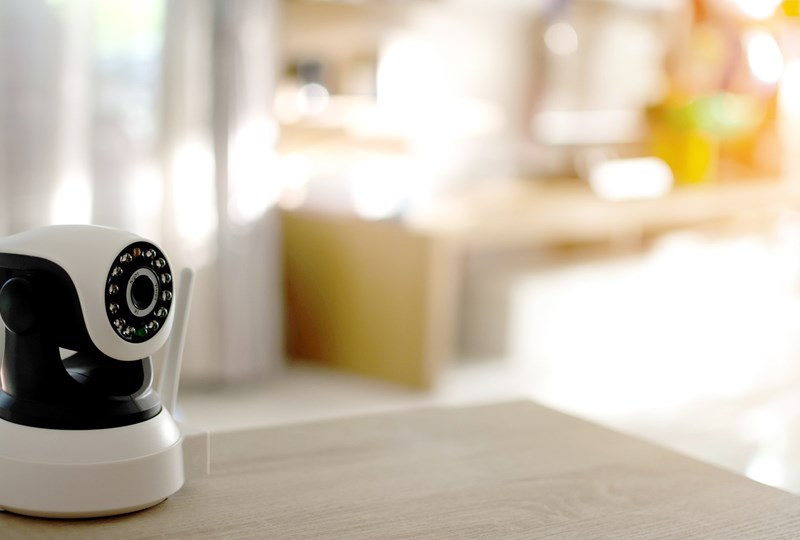
Key Insights
- Recording laws are different across states.
- In Minnesota and western Wisconsin, it’s legal to secretly video record in your home, but you are not allowed to record audio.
- If you intend to video record during a showing, be sure to turn the audio recording function off.
- Keep in mind that it’s illegal to videotape a person where there is likelihood of recording them in a state of undress (for instance, a bathroom).
Homeownership can be complicated, but we also think it’s one of the most rewarding ventures out there. In our series Ask an Edina Realty Lawyer, we are hoping to demystify some of the trickier aspects of buying, selling and owning a home.
In this edition, one of our lawyers discusses the legality of sellers using hidden cameras or other recording devices while a potential buyer tours their property.
Dear Edina Realty Legal,
My home is currently listed for sale. I have a couple of hidden cameras for security purposes but have been told that it is illegal for me to have the cameras on when I have open houses or showings. Is that true?
Well, that’s partly true and partly not. When it comes to hidden cameras and other recording devices, each state has its own rules. For this article, we’ll just focus on those rules applicable to Edina Realty’s primary areas of Minnesota and Wisconsin.
In Minnesota and Wisconsin (and many other states) it’s important to distinguish between the recording of video only and the capturing of audio of conversations.
As a general rule, you are allowed to videotape (even secretly) in your own home.
There are a number of legitimate reasons a homeowner may want to install a hidden camera in their home. A camera could capture video evidence in case of a burglary, or the homeowner might want to keep an eye on their kids or pets.
For the most part, it is perfectly legal to have a camera taking video of what occurs within your home. This is true even if the camera is capturing video of someone without their knowledge. One big caveat to that general rule is that you are not permitted to place a camera with the intention or likelihood of capturing a person taking their clothes off — for example, in a bathroom.
However, you can’t typically record audio without the speaker’s knowledge or consent.
While it is generally permissible to record video, state regulations treat the recording of audio differently. In Minnesota and Wisconsin, it is against the law to use electronic means to intercept an oral communication when it is made with the reasonable expectation of privacy. These laws are generally focused on wiretapping but can be applied more broadly.
An oral communication can be a conversation between two or more people, so a conversation between prospective buyers of your home and their agents would appear to fall into the definition of an oral communication.
So, in short, it’s generally ok to have a video camera in your home. However, if you’re going to have showings and open houses, you should adjust your camera settings to not record the audio.
Note: There is an exception to the law that allows a party to a conversation to secretly record a conversation — but you are not a party to the conversations between potential buyers and their agents.
The Edina Realty legal department serves as in-house counsel for Edina Realty and does not represent private clients. This article is not intended to provide legal advice.








 ©2025 Prosperity Home Mortgage LLC®. (877) 275-1762. 3060 Williams Drive, Suite 600, Fairfax, VA 22031. All first mortgage products are provided by Prosperity Home Mortgage, LLC®. Not all mortgage products may be available in all areas. Not all borrowers will qualify. NMLS ID #75164 (For licensing information go to: NMLS Consumer Access at
©2025 Prosperity Home Mortgage LLC®. (877) 275-1762. 3060 Williams Drive, Suite 600, Fairfax, VA 22031. All first mortgage products are provided by Prosperity Home Mortgage, LLC®. Not all mortgage products may be available in all areas. Not all borrowers will qualify. NMLS ID #75164 (For licensing information go to: NMLS Consumer Access at